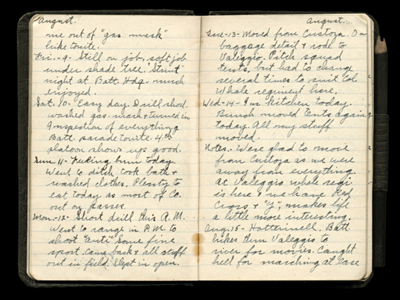
Find out more about written accounts in this quiz.
War Diaries
When one thinks of war diaries, images are conjured of men huddled in the trenches writing their own personal accounts of the war. Many of these exist and they give a valuable insight into the personal experiences of soldiers during the First World War. But another kind of war diary exists. The British Army war diaries were kept by each unit and record daily operations, losses, awards and other such material. Some of these have recently been digitised and made available to the public on the National Archives website. This quiz is about both kinds of diary, which together help historians to understand life on the frontline in the First World War.
Ready for more?
not all...
quizzers. Try to win a coveted spot on our Hall of Fame Page.







